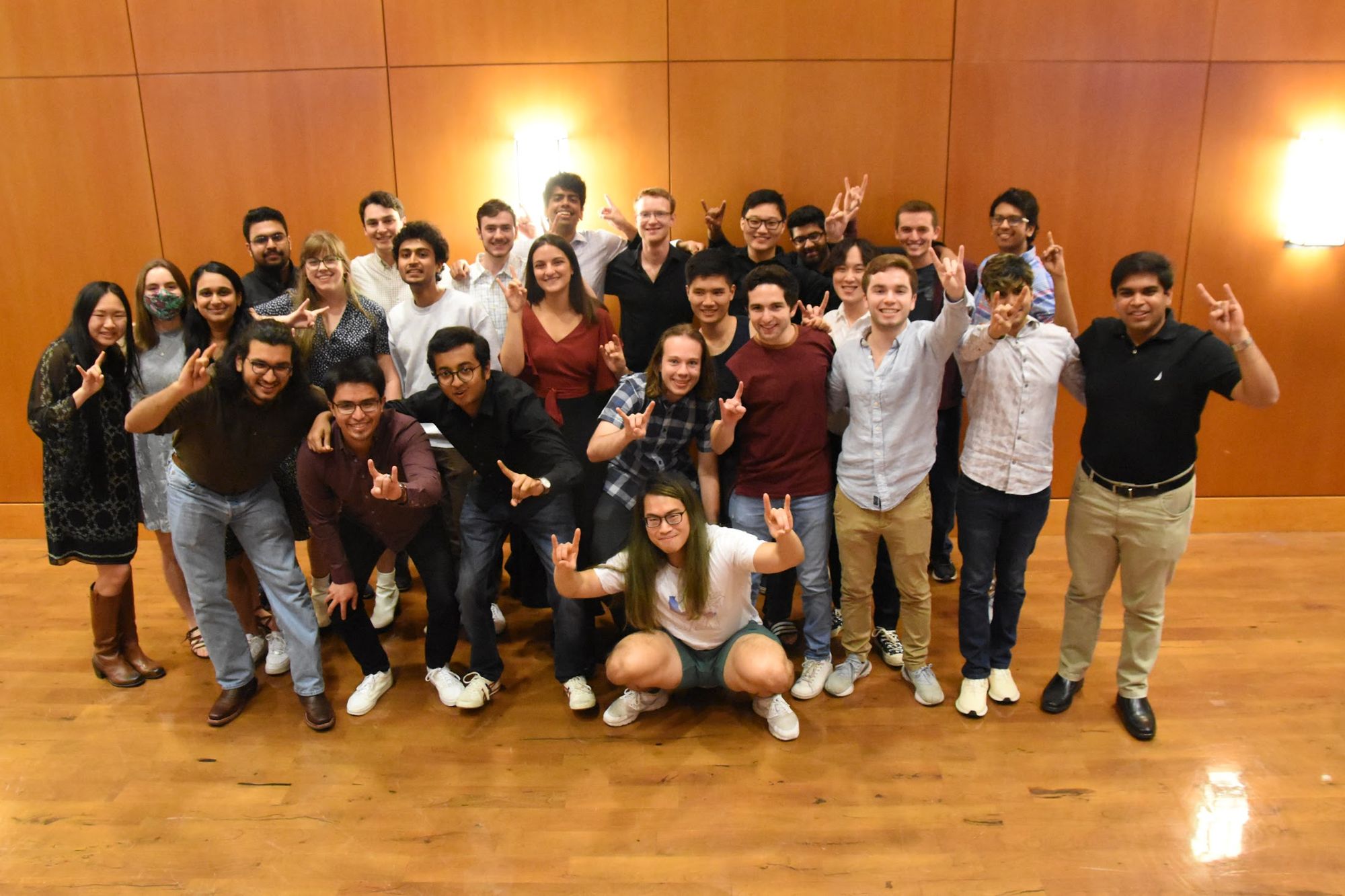Why Turing
The Turing Scholars Program is unique. By serving a small number of truly outstanding students—we typically matriculate about 50 first-year Turing Scholars each fall—we are able to provide an outstanding learning experience that combines the resources of a large university with the benefits of a small community.
In particular, our goal is to recruit the best students from around the country, to give them special opportunities, and to produce the high tech leaders of tomorrow. And our program's small size allows us (1) to offer stimulating and challenging honors courses that even small private schools cannot offer, (2) to provide significant faculty contact and guidance, and (3) to foster a supportive community in which students learn from each other and inspire each other. In short, our program is designed to encourage students to do truly amazing things, both during their college career and beyond.
Benefits
Strong Community

One of the most important aspects of our program is our community. Turing Scholars bond and make lifelong friends by taking small challenging honors courses as a cohort. This bonding is facilitated by small honors class sizes—typically 30-60—at a time when CS class sizes around the country are booming, even at small private schools. Students also have many opportunities to get to know faculty, and students can form particularly strong relationships with faculty through undergraduate research. This close-knit community extends beyond the classroom, as the Turing Scholars Student Association organizes regular events, such as brunches with professors, potlucks, and excursions into the city.
Austin

Austin is a vibrant city that has been the fastest-growing major metropolitan area in the US for nine straight years. With its young well-educated population, its booming tech industry, and its bustling music and cultural scene, Austin serves as a great backdrop for a college experience.
Honors Housing
In their first year at UT, most Turing Scholars choose to live in UT's Honors Living Community, comprised of the four halls in the Honors Quad (Andrews, Blanton, Carothers, and Littlefield) and populated by students from UT's various honors programs. Thus, the Honors Dorms allow Turing Scholars to form ties with some of the university's most talented students.
Undergraduate Research Opportunities
An important component of the Turing Scholars degree is an undergraduate honors thesis, which is structured like a miniature PhD thesis, with a faculty advisor who helps shape and guide the research and a committee of faculty members that approves the thesis based on the student's written thesis and oral presentation. While not always publishable, the thesis is intended to be a significant piece of work that is typically conducted over two or more semesters. The honors thesis is often a student's most meaningful component of their college career, and beyond the technical depth required, the experience helps students develop a host of important life skills, including critical thinking, written and oral communication, and organizational and executive skills.
Career Opportunities
Turing Scholars are highly sought after by industry. For example, freshman internships in the tech industry are rare, but with our aggressive first-year CS curriculum and our program's stellar reputation, about 75% of our freshmen find summer internships in the tech industry.Because our students have research experience, they are highly sought after by top graduate programs. Students interested in graduate school are usually admitted straight to PhD programs after their undergraduate degree. In recent years, students have gone onto top PhD programs in places like Stanford, MIT, UIUC, Berkeley, CMU and Cornell.
Our most recent poll, conducted in 2019, shows that across our freshmen, sophomores and juniors, salaries for summer internships ranged from $20/hour to $95/hour, with a median salary of $50/hour. The same poll showed that the average compensation upon graduation was $148K (including stock grants but excluding signing bonuses).
Our students who choose to pursue a PhD have enjoyed a tremendous record of placement in the top 10 PhD programs.
Turing Scholars
Contact Us
Turing Scholars Honors Program
Department of Computer Science
The University of Texas at Austin
2317 Speedway, Stop D9500
Austin, TX 78712
honors@cs.utexas.edu
Director, Turing Scholars Honors Program
Professor of Computer Science
Calvin Lin
GDC 5.512
Recruiting & Admission Coordinator
Alejandra Bernal
bernal@cs.utexas.edu



